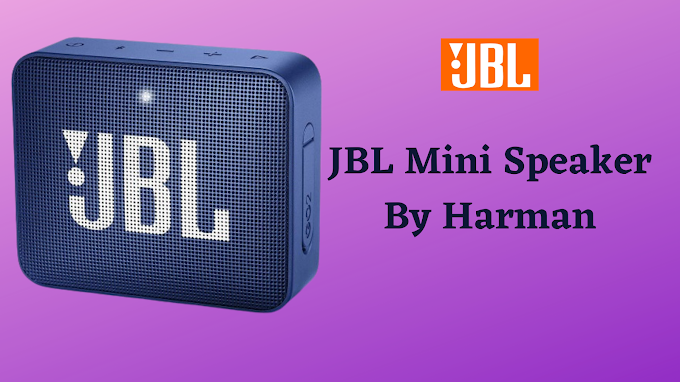Coaxial speaker cables are a type of cable used to connect speakers to an amplifier or receiver. They are designed to transmit audio signals with the highest possible fidelity, ensuring that the sound quality of your system is as clear and accurate as possible. In this article, we will explore the features and benefits of coaxial speaker cables and offer some tips for choosing the best cable for your needs.
What is a Coaxial Speaker Cable?
A coaxial speaker cable consists of two conductors: a central conductor and a shield. The central conductor is typically made of copper and carries the audio signal from the amplifier or receiver to the speaker. The shield, which is typically made of braided copper or aluminum, surrounds the central conductor and protects it from electromagnetic interference (EMI) and radio frequency interference (RFI).
Coaxial speaker cables are designed to have a low capacitance and a high impedance, which helps to reduce signal loss and distortion. They are often used in professional audio settings and high-end home theater systems, where the highest level of signal fidelity is desired.
Types of Coaxial Speaker Cables.
There are several types of coaxial speaker cables available on the market, each with its own unique features and benefits. Some of the most common types include:
Copper:
Copper is the most common material used for speaker cable conductors. It is relatively inexpensive and offers good conductivity, making it a popular choice for many applications.
Silver:
Silver is a more expensive material than copper, but it has even better conductivity, making it a good choice for high-end systems that demand the best possible sound quality.
Oxygen-free copper (OFC):
OFC is a type of copper that has been refined to remove impurities and improve conductivity. It is commonly used in high-end speaker cables for improved performance.
Long-grain copper (LGC):
LGC is a type of copper that has been drawn out in a way that aligns the grain structure, resulting in improved conductivity and reduced distortion.
Carbon fiber:
Carbon fiber is a newer material used in some high-end speaker cables. It offers excellent conductivity and can help reduce unwanted vibrations that can affect sound quality.
Bi-wire:
Bi-wire cables use two separate sets of conductors to separately connect the low-frequency and high-frequency drivers in a speaker. This can potentially improve sound quality, although it requires speakers with bi-wire connections.
Tri-wire:
Tri-wire cables are similar to bi-wire cables, but use three separate sets of conductors to separately connect the low-frequency, mid-frequency, and high-frequency drivers in a speaker.
Benefits of Coaxial Speaker Cables.
Coaxial speaker cables offer several benefits over other types of speaker cables. Here are some of the most important benefits:
Reduced signal loss and distortion:
Coaxial speaker cables are designed to minimize signal loss and distortion, resulting in a clearer and more accurate sound reproduction.
Improved shielding:
The shield in a coaxial speaker cable helps to protect the audio signal from EMI and RFI, reducing the chances of interference and signal degradation.
Enhanced sound quality:
By providing a clean and accurate audio signal, coaxial speaker cables can help to improve the overall sound quality of your audio system.
Compatibility:
Coaxial speaker cables are compatible with a wide range of audio systems, making them a versatile choice for many applications.
How To Choose the Right Coaxial Speaker Cable.
When choosing a coaxial speaker cable, there are several factors to consider. Here are some key points to keep in mind:
Gauge:
The gauge of a speaker cable refers to its thickness, with lower numbers indicating thicker wires. Thicker wires can offer lower resistance and better performance over longer distances. Consider the length of the cable run and the power output of your amplifier or receiver when selecting the appropriate gauge.
Construction:
Look for cables with high-quality materials and construction, such as high-purity copper conductors, advanced insulation, and effective shielding to reduce EMI and RFI.
Connectors:
High-quality connectors can help ensure a reliable connection between the cable and your amplifier or receiver, as well as your speakers. Look for connectors that are well-made, durable, and designed to reduce signal loss.
Impedance:
Make sure the cable you choose is compatible with the impedance of your speakers. This can affect the overall sound quality and performance of your system.
Brand and reputation:
Look for reputable brands that have a track record of producing high-quality speaker cables. Read reviews and research online to get a sense of the experiences of other users.
Budget:
Coaxial speaker cables can range in price from relatively inexpensive to very expensive. Set a budget and look for the best quality cable you can afford within your price range.
Ultimately, the best coaxial speaker cable for your system will depend on your specific needs and preferences. Take the time to research and compare different options to find the best match for your system and budget.
Best Coaxial Speaker Cables in the Market.
There is no single "best" coaxial speaker cable as different cables can perform differently depending on the specific application and system setup. However, some highly regarded coaxial speaker cable brands and models include:
AudioQuest Type 4:
This cable features solid long-grain copper conductors, a foamed polyethylene insulation, and a double-layer carbon-based noise-dissipation system.
Kimber Kable 8TC:
This cable uses eight conductors made of high-purity copper, arranged in a braided configuration to reduce EMI and RFI.
Transparent Audio MusicWave Ultra:
This cable uses a special network to reduce distortion and improve clarity, and features a low-inductance design to improve high-frequency performance.
Wireworld Silver Eclipse 8:
This cable uses a unique geometry and design to minimize noise and distortion, and features silver-plated OFC copper conductors for high conductivity.
Nordost Blue Heaven:
This cable features a low capacitance design and uses high-quality OFC copper conductors, and is known for its neutral and transparent sound.
When choosing a coaxial speaker cable, it's important to consider the specific needs of your system and budget, as well as conducting research and reading reviews to find the best match for your setup.
Top 10 coaxial speaker cable.
1.Monoprice 109436 Premium Coaxial Speaker Cable: .jpeg)
This high-quality cable is available in a variety of lengths and gauges, and is designed to minimize signal loss and interference. Its braided shield provides excellent noise reduction, and its gold-plated connectors ensure a reliable connection.
2.Mediabridge Ultra Series Coaxial Speaker Cable:
2.Mediabridge Ultra Series Coaxial Speaker Cable:
This versatile cable is available in a range of lengths and gauges, and features a solid copper conductor for maximum signal transfer. Its flexible PVC jacket is both durable and easy to install, and its precision machined connectors provide a secure and stable connection.
3.AmazonBasics Digital Audio Coaxial Cable:
This affordable cable is available in lengths up to 25 feet, and features a copper-clad center conductor for improved signal transfer. Its gold-plated connectors ensure a reliable connection, and its durable PVC jacket protects against wear and tear.
4.AudioQuest Black Lab Coaxial Cable:
This premium cable features a solid long-grain copper conductor for exceptional signal transfer, and is available in lengths up to 50 feet. Its noise-dissipation system minimizes interference, and its cold-welded connectors provide a stable and secure connection.
5.Blue Jeans Cable LC-1 Coaxial Cable:
This high-quality cable is designed to minimize signal loss and interference, and features a double shielded design for excellent noise reduction. Its Belden 1694A conductor provides exceptional signal transfer, and its Neutrik connectors ensure a secure and stable connection.
6.Canare L-4E6S Star Quad Coaxial Cable:
This versatile cable is available in a variety of colors and lengths, and features a star quad design for improved noise rejection. Its braided shield provides excellent noise reduction, and its high-quality connectors ensure a reliable connection.
7.Mogami Gold RCA-XLR Coaxial Cable:
This premium cable features a high-quality copper conductor for exceptional signal transfer, and is available in lengths up to 25 feet. Its gold-plated connectors provide a reliable connection, and its rugged construction ensures durability.
8.Gotham GAC-1 Ultra Pro Coaxial Cable:
This high-performance cable is designed for professional audio applications, and features a solid silver conductor for maximum signal transfer. Its double shielded design provides excellent noise reduction, and its Neutrik connectors ensure a reliable and stable connection.
9.Van Damme Blue Series Studio Grade Coaxial Cable:
This high-quality cable is designed for use in professional audio applications, and features a high-purity oxygen-free copper conductor for exceptional signal transfer. Its double shielded design provides excellent noise reduction, and its Neutrik connectors ensure a secure and reliable connection.
10.VIVO Black 500ft RG6 Coaxial Cable:
This long-length cable is ideal for larger installations, and features a solid copper core for maximum signal transfer. Its quad shielded design provides excellent noise reduction, and its durable PVC jacket protects against wear and tear.
F&Q :
Q1.What is a coaxial speaker cable?
A coaxial speaker cable is a type of audio cable that is designed to transmit audio signals from an amplifier or receiver to a speaker. It consists of a center conductor, surrounded by a dielectric material, and then a shield that protects the conductor from interference.2.How do I choose the right coaxial speaker cable?
When choosing a coaxial speaker cable, you should consider factors such as the length of the cable, the gauge (thickness) of the wire, and the quality of the connectors. A thicker cable and better quality connectors will generally result in better audio quality.Q3.Can I use any coaxial cable for speakers?
While any coaxial cable can technically be used for speakers, it is recommended to use a cable specifically designed for audio applications. Regular coaxial cables may not provide the same level of noise reduction and signal transfer as an audio-specific cable.Q4.How long should my coaxial speaker cable be?
The length of your coaxial speaker cable should be determined by the distance between your amplifier or receiver and your speaker. It is generally recommended to use the shortest cable possible to minimize signal loss.Q5.Can a coaxial speaker cable be used for both audio and video?
While coaxial cables can be used for both audio and video signals, it is generally recommended to use separate cables for each type of signal for the best possible quality.Conclusion :
Coaxial speaker cables are an important component of any high-quality audio system. They offer several benefits over other types of speaker cables, including reduced signal loss and distortion, improved shielding, and enhanced sound quality.Thank You.
For Reading.


.png)
.png)
.png)
.png)
.png)
.jpeg)




.jpeg)
.jpeg)





0 Comments